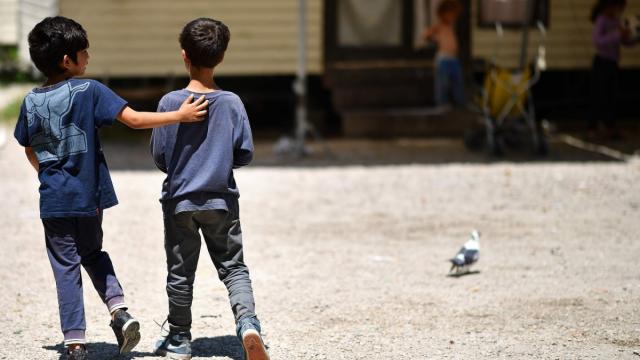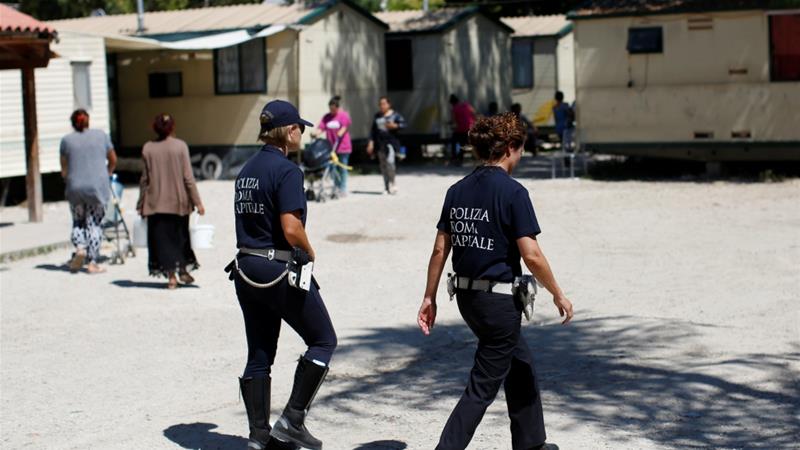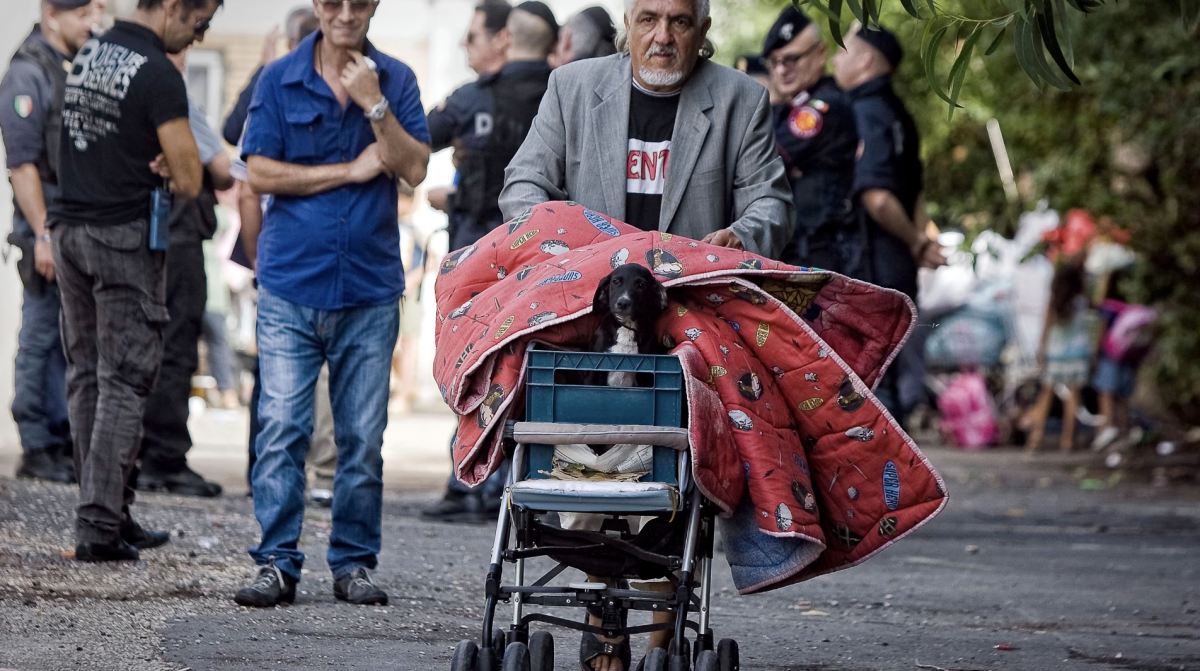
In a move echoing Donald Trump’s continued attacks on immigrants to the United States, Italy’s Deputy Prime Minister Matteo Salvini has launched an all-out campaign against migrants seeking sanctuary in Italy. At a July 1 meeting of his Northern League party, he went so far as to declare plans for a “League of the Leagues of Europe, bringing together all the free and sovereign movements that want to defend their people and their borders."
This follows Salvini's announced plans last month for a census of the country’s 130,000 Roma with the aim of deporting all those who are in the country illegally. He begrudgingly admitted, however, that his government lacks the power to deport those who possess Italian citizenship.
Speaking on TV channel Telelombardia, Salvini said: “I’ve asked the ministry to prepare a dossier on the Roma question in Italy… Unfortunately, as far as Roma with Italian citizenship are concerned, we will have to keep them as we cannot expel them.”
Salvini belongs to the far-right Northern League party and is vocal in his accusations that the Roma community is a hotbed of criminal activity. Following his announcement, in very Trumpish fashion, he tweeted: “I’m not giving up and I’m pushing ahead! The Italians and their safety first.”
The week before, he came under fire for refusing a boatload of 630 refugees – including seven pregnant women and 123 unaccompanied minors – who were seeking sanctuary in Italy, forcing them to dock in Spain instead. He also prevented aid ships from helping those onboard. “Enough,” Salvini wrote on his Facebook page. “Saving lives is a duty, transforming Italy in[to] a refugee camp isn’t… Italy is done with taking orders, this time there is someone saying no.”
“For the moment it is just a speech,” Elena Risa of the children's aid organization Associazione 21 luglio told Occupy.com last week. “But [we] are concerned about the general political context. In the last election in May, the two winning parties published the contract for the so-called ‘government of change’ in which the leaders laid out the Italian political agenda for the upcoming five years. Considering what is stated in the contract… our organization expresses deep concern about the actions that could be taken.”
Dr. Nando Sigona, who studies international migration and forced displacement at the University of Birmingham, agrees that Salvini’s threats amount to an extension of what has already featured in proposed government policy. “There is certainly a lot of theatre in Salvini’s style – a shocking statement every day to keep all media attention on himself,” he said. But, “His threats should not be underestimated. [They] are not all new, as to some extent he is continuing policies that had already been laid out by the previous minister.”
Nonetheless, Sigona said he believes “the Italian courts as well as international organizations and the European Commission will intervene and the initiative will be stopped simply because it is illegal”.
The Roma have long been typecast as unemployed thieves and troublemakers in Italy, failing to contribute productively to the economy. “The issue is that people keep seeing the Roma as a problem,” Jelena Jovanovic of the ERGO Network told Occupy.com.
“They are ignoring the fact that racism is the main cause of poverty, leaving the Roma with no access to education, employment, health and quality housing. The majority of the population and institutions are not only failing to fight anti-gypsyism, but accepting it as a norm.”
Risa is insistent that the Roma stereotype is unfair and is not backed up by statistics. “Six out of seven Roma pay taxes, most own homes or pay rent, and only about 26,000 live in camps – segregated areas that were created by previous right-leaning governments, or in informal settlements," she added. "Many Roma are Italians – 43% of the 26,000 living in ‘camps,’ according to our latest research – while many others are stateless and cannot be expelled.”
Unsurprisingly, many Italians have made comparisons to fascist dictator Benito Mussolini’s actions during the Second World War when he also targeted the Roma population. However, Risa cites a more recent example. “In 2008, the Interior Minister Roberto Calderoli [who is part of the same Northern League party as Salvini] initiated an ethnical census, registering Roma people living in Italy, and the actions were claimed unconstitutional,” she explained.
The fact is, the Roma represent an “easy” target, said Sigona. “The attacks on Roma have been a constant feature in Salvini’s political toolkit for years. He is strengthening his political positions by instigating moral panic against minorities and vulnerable migrants.”
Dr. Rosana Barbulescu, an who studies new migrations in the UK and Europe at the University of Leeds, is also concerned that it may be difficult to convince voters to turn away from Salvini’s racist rhetoric.
“Given the Northern League and its supporters' concerns about Roma people and immigrants, this initiative of Salvini's would satisfy illiberal voters,” Barbulescu told Occupy.com. “So how can we stop a not insignificant share of the Italian population wanting it, demanding it from their political leaders, and rewarding them for it in the ballot box? Civil society cannot and must not be left alone in this task.”
On June 25, Salvini called for “migrant reception centres” on the external borders of Southern Libya. And at a European Union summit last Thursday and Friday, he agreed with other leaders to allocate £500 milllion (just over $650 million) to tackle the immigration “problem".
It is clear by now that immigration ranks high on Salvini’s list of priorities and forms, as Sigona has said, a strong element of his "political toolkit". The question is: How far will he be prepared – and able – to go to fulfil his demands of purging the country of members of an ethnic minority? For as students of history can attest, movements like these rarely end well.

















